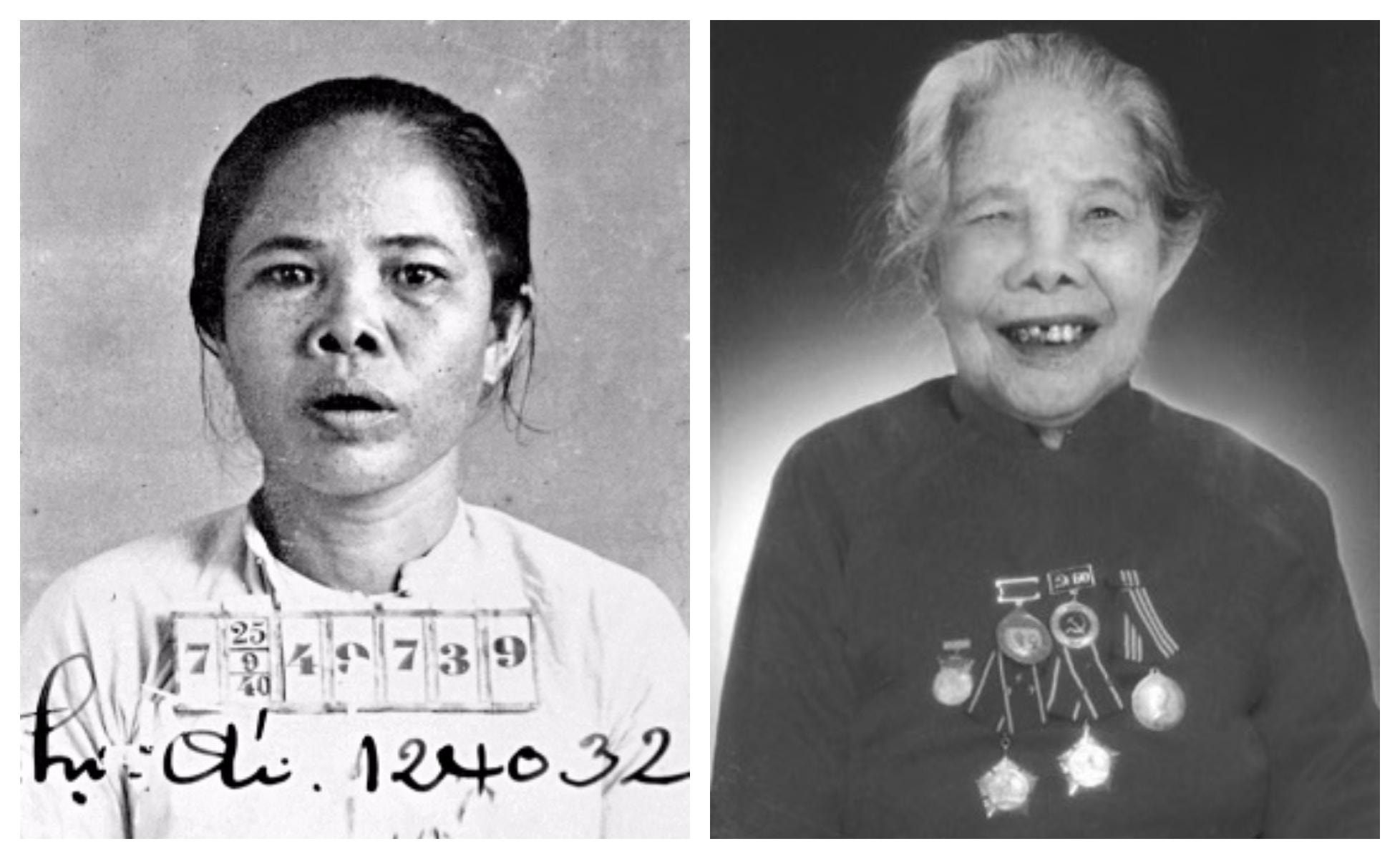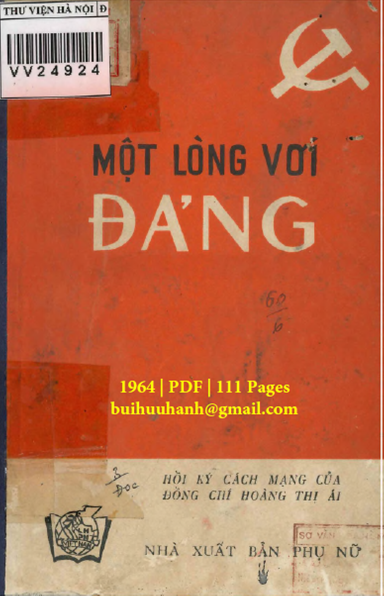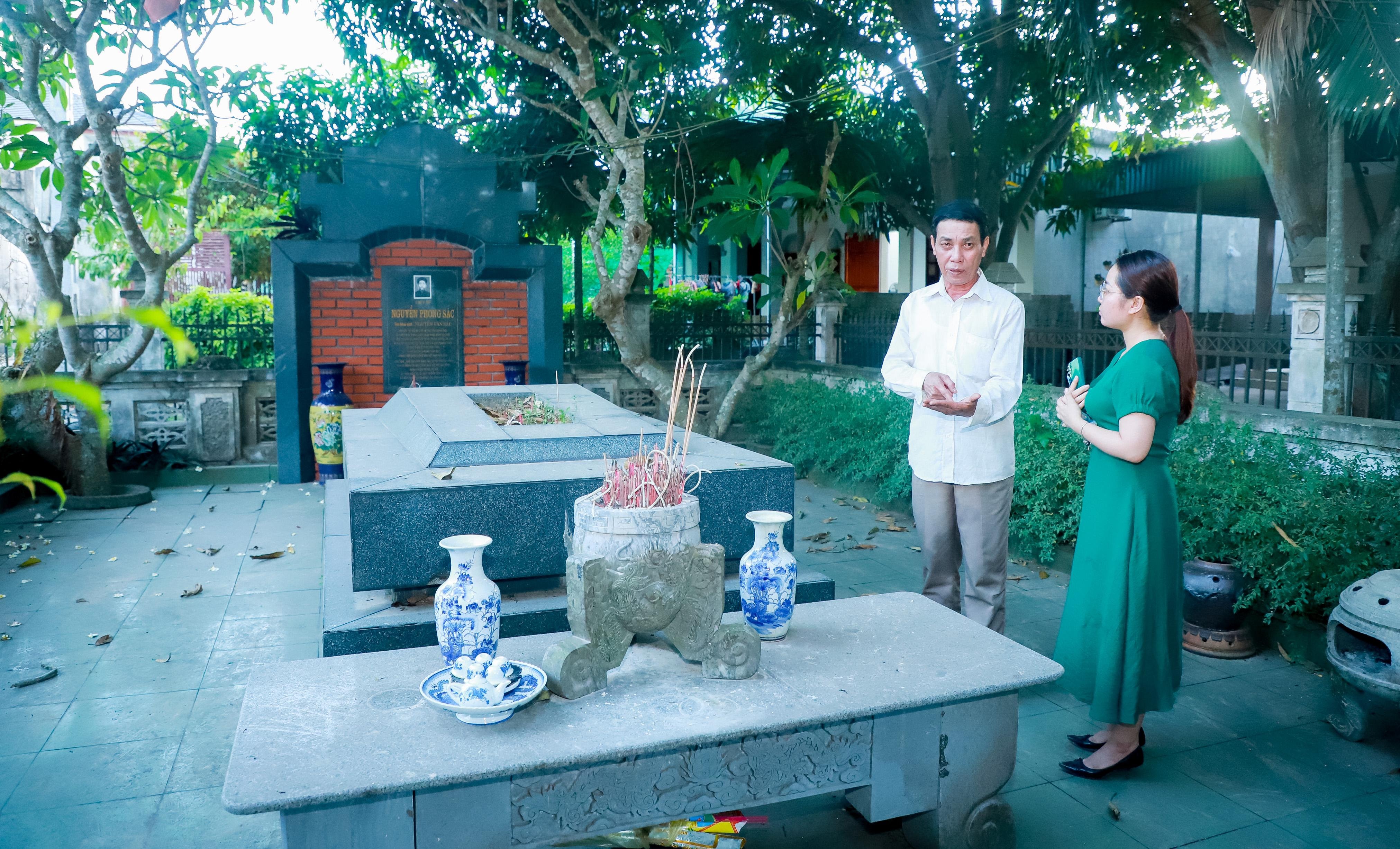The story of one of the first female communist party members in Vietnam
(Baonghean.vn) - During a visit to Hoa Lo Prison relic (Hanoi) not long ago, I learned about the life story of Ms. Hoang Thi Ai - one of the first female communist party members in Vietnam, wife of the staunch communist Nguyen Phong Sac - Secretary of the Central Region Party Committee in the period 1930 - 1931. Her life represents millions of Vietnamese women's lives: escaping the oppression and domination of feudalism and colonialism; loyally following the Party; suppressing many personal pains to devote to the revolution until the last moment.
Comradeship, husband and wife relationship
On February 3, 1900, in Trieu Long commune, Trieu Phong district, Quang Tri province, a patriotic Confucian family welcomed their baby daughter into the world. She was named Hoang Thi Ai.
In this land, little Ai's family is quite famous, because her grandfather is Mr. Hoang Huu Xung, who served as an official for 30 years under 7 Nguyen kings and her father is also a Western-educated intellectual. Because of his patriotism, when he returned to Vietnam, instead of becoming an official, he decided to open a private school to teach Vietnamese children the spirit of patriotism and resistance against foreign invaders. Growing up in a family education, being instilled and imbued with love for the homeland and country, and a deep hatred for foreign invaders, Hoang Thi Ai soon became aware of the revolution. In 1927, she joined the Vietnam Revolutionary Comrades Association in her hometown, then became one of the first female communist party members in Vietnam.
 |
| Photo of Ms. Hoang Thi Ai in the file kept at the colonial prison (left) and after the country was at peace and unified (Right). |
At that time, she participated in the “Hung Nghiep Hoi Xa” in Quang Tri, organizing business activities to raise funds for the Vietnam Revolutionary Youth Association. In May 1929, the “Hung Nghiep Hoi Xa” was exposed and she was arrested by the French colonialists in Quang Tri. After being released, at the end of 1929, Hoang Thi Ai went to Vinh town, Nghe An province to work as a liaison for the Central Region Party Committee and the Northern Region Party Committee and was responsible for printing documents and leaflets; finding revolutionary activity locations, purchasing printing materials and equipment for the localities. Here, Hoang Thi Ai met and was arranged by the organization to work as secretary for comrade Nguyen Phong Sac - Secretary of the Central Region Party Committee.
To ensure secrecy and facilitate their work, the organization asked them to pretend to be husband and wife. They had to live together under one roof to hide from the enemy and easily infiltrate the local workers' movement. It was during these days of revolutionary activities together that feelings arose between them. With the support of the organization, they became a real couple, although she also knew that he had a wife and children in Hanoi...
Mother's pain
Throughout her life, Mrs. Hoang Thi Ai seemed to have had few happy days. In the short years of being married to comrade Nguyen Phong Sac, the two had a daughter together. They named her Thanh Van. Thanh Van - a cloud in the blue sky - a name that seemed to convey many aspirations for freedom and happiness, but after only a month of giving birth, they had to part ways to do their duties, leaving Thanh Van to a family at the revolutionary base to raise. The day she suppressed her pain and saw her baby crying for milk, the mother could not have imagined that it would be the last memory of the two of them.
 |
The memoir "One Heart with the Party" by Ms. Hoang Thi Ai. |
After sending their children away, Mrs. Hoang Thi Ai and Mr. Nguyen Phong Sac focused on the task of maintaining and developing the revolutionary movement in Central Vietnam, which was in a difficult situation. At that time, the French colonialists and the feudalists of the Southern Dynasty tried to terrorize the revolutionary movement. The Governor-General of Indochina, the Resident-in-Chief of Central Vietnam, the Resident-in-Chief of Nghe An and Ha Tinh ordered soldiers at the stations to shoot and kill the revolutionary masses, and hunt down cadres and party members. One by one, comrades in the Central Vietnam Party Committee fell into the hands of the enemy. In March 1931, after attending the Second Central Conference of the Indochinese Communist Party in Saigon, Nguyen Phong Sac was arrested by secret police and brutally tortured. The enemy executed him on May 26, 1931, at Song Loc station, Nghi Loc district, Nghe An province. At that time, Nguyen Phong Sac was only 29 years old.
At that time, Mrs. Hoang Thi Ai was also imprisoned by the enemy at the Vinh Secret Service. Upon receiving the news that her husband - a loyal comrade - had sacrificed his life, her heart was inconsolable. With her firm belief in the Party, Hoang Thi Ai steadfastly endured the most brutal tortures of the enemy. Two months later, they transferred her to Vinh Prison. Afterwards, the Southern Court sentenced Hoang Thi Ai to 13 years in prison, and after the review process in Hue, the sentence was reduced to 7 years in prison.
 |
The tomb of comrade Nguyen Phong Sac in Binh Minh hamlet, Phuc Tho commune, Nghi Loc district, Nghe An province. Photo: Phuoc Anh |
In 1936, the Popular Front in France came to power, promulgating a number of democratic freedoms, including amnesty for political prisoners in colonial countries. Along with many other comrades, Hoang Thi Ai was released. After being released from prison, the first thing she did was to look for Thanh Van - the beloved blood that she had been constantly worried about during thousands of days and nights in prison. Hoang Thi Ai returned to the revolutionary base family where she had left her child, but her excitement was shattered when she heard the shocking news: That couple was also captured by the enemy after the Nghe Tinh Soviet movement, her child and that couple's child had died of thirst for milk! Oh my God! Died of thirst for milk! Every word, every letter seemed to pierce a mother's heart. What could be more painful than that!
Hoang Thi Ai became a widow, losing her child at the age of 35. Later, the organization repeatedly encouraged her to remarry, and there were many admirers, but she refused. She said that after her husband and children died, she only had two wishes: to stay single, to worship her husband and children, and to devote her whole life to the revolution.
In May 1940, Hoang Thi Ai was arrested by the French colonialists and imprisoned in the women's camp of Hoa Lo Prison. In June 1945, after being released, Hoang Thi Ai returned to her hometown to continue participating in revolutionary activities. She was appointed as a member of the Provincial Party Committee, a member of the Uprising Committee of Quang Tri Province, and concurrently assumed the duties of Secretary of the Women's National Salvation Association of the province. The first National Women's Congress (term 1950 - 1956) in Dai Tu, Thai Nguyen elected Hoang Thi Ai as Vice President of the Association. She then continued to hold this position until her retirement.
For lifefor revolution, compressiongo through many feelingsPrivately, Mrs. Hoang Thi Ai's life was somewhat compensated when she met the youngest son of revolutionary Nguyen Phong Sac and his first wife.The day they met, the two women shared the pain of losing their husbands and considered each other as sisters.first wife - bto Trinh Thi Can,held Mrs. Hoang Thi Ai's hand with tears in her eyes: "From now on, your child is also my child. Mr. Sac is no longer here, we sisters will take care of and love each other, consider each other as real sisters."

